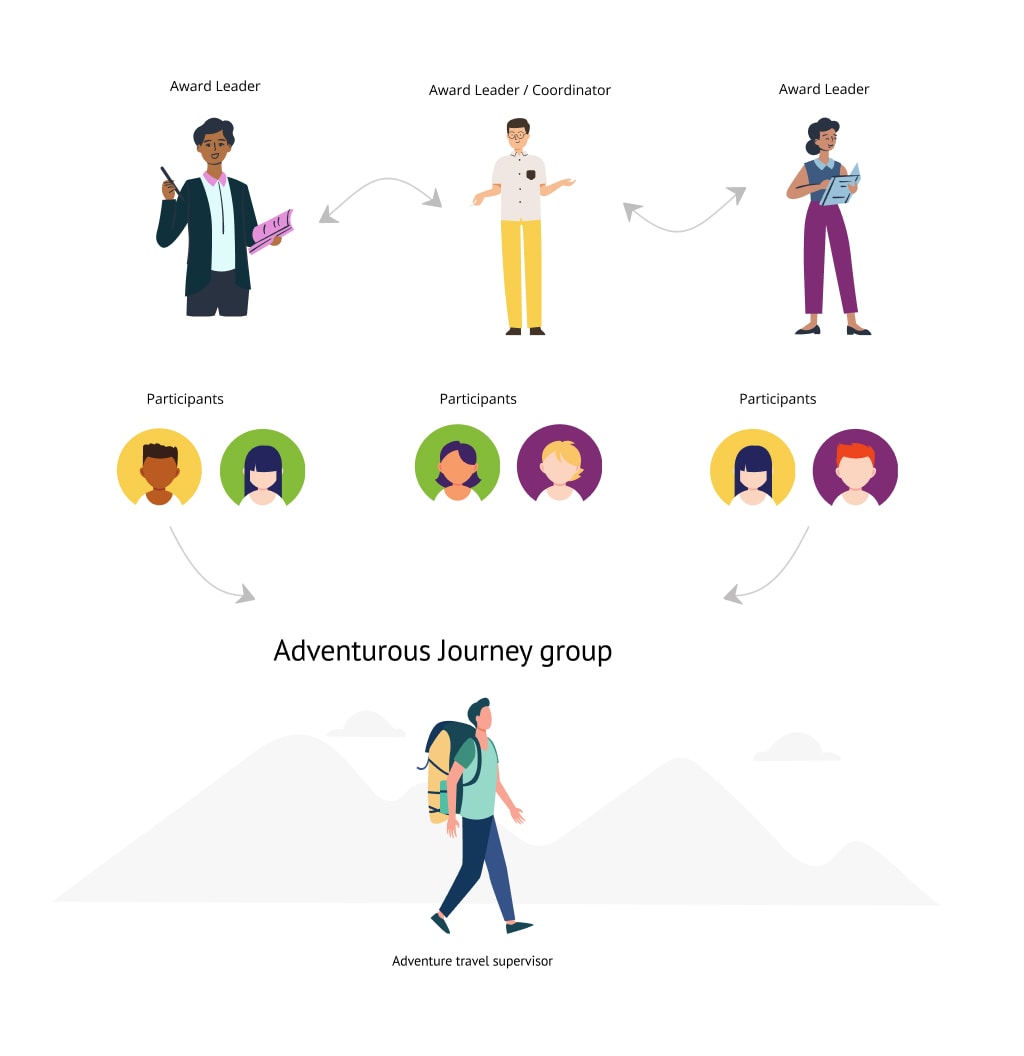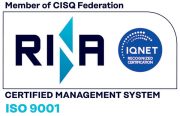The mission of the Award in Bulgaria is to be accessible to all young people aged 14-24. To achieve this, we work with schools and organizations that are licensed to implement the program among their youth. In this section you can find out more about the structure of the Award, the licensing process and the benefits of the partnership.
8 million young people from over 130 countries around the world have already participated in the Award. This is possible thanks to the thousands of schools and organizations that support the young people involved in their personal development. The Foundation of the Award in Bulgaria provides licensing, training, online system, support and certification for the participating organizations. Any organization that works with children and young people (e.g. schools, youth organizations and clubs, sports or tourism clubs, non-profit organizations) can be licensed as an operator of the Award, giving access to the program to young people it works with .
The Award is a tool that can easily become part of the school or organization culture, involving employees, young people and parents in a common initiative that supports young people and prepares them for the world that awaits them.
Once an organization is licensed, a team of its employees undergoes a certification training related to the implementation of the program – Leadership training, program management training and training for supervisors and assessors , which allow the team to plan their activities according to the annual calendar of the organization and the specific needs of the students. Throughout, the team works with a coordinator from the region who provides all the necessary materials and documents, shares good practices from other cities and countries and fully supports the development of the school program.


Service
Through this section, young people become volunteers in their community, having the opportunity to build new acquaintances and feel the importance of their role for the well-being of others.
Volunteering for a certain period of time gives them the opportunity to meet people in the community with whom they probably would not have the opportunity to communicate and find out what positive change they can achieve. This can help them improve both their teamwork and communication skills and give them more confidence and personal satisfaction.
- Helping people in the community
- Environmental protection
- Charity
- Working with young people
- Community training and health education
- Assistance in emergency services
Physical recreation
The Physical recreation section encourages young people to improve their health and fitness, regardless of their physical condition. They can choose team sports, individual sports or activities that strengthen health and endurance.
It could be something they are already doing regularly, they have tried before, or something completely new to them. The Physical recreation section will help them feel healthy, build valuable team skills, gain self-confidence, confidence and discipline.
- Ball sports
- Winter sports
- Fitness activities
- Adventure sports
- Athletics
- Martial Arts
- Water sports
- Animal sports
- Others

Skills
In the Skills section, young people develop their personal interests and practical and social skills. They may choose to hone a skill they have already acquired or pursue something new. The important thing is to try, learn something and get better at it – so they will feel satisfied that they have achieved their goals.
Colleges, universities and employers value not only academic preparation but also life skills!
- Music
- Skills related to sports
- Arts and crafts
- Communications
- Nature and environment
- Games
- Life skills
- Technical and professional skills
- Stage skills

Adventurous Journey
The Adventure Journey section encourages the adventurous and exploratory spirit of young people through their participation in a team trip – an outdoors expedition or exploration.
The adventure in nature will give them the opportunity to enrich their knowledge in the field of geography and the environment, as well as to develop their confidence, teamwork skills and strengthen their health.
Although the challenge is difficult and puts them out of their comfort zone, young people are safe under the supervision of experienced professionals who have undergone special training.
- Exploration of the natural world
- Historical study of a village
- Research on the survival or extinction of a language
- Study of human influence
- Conducting health studies
- Hiking by bike, canoe / kayak or on foot
- Kayaking along the entire length of a river
- Following an ancient pilgrimage route
- Cycling on an ancient road

Residential project
The Residential project section is open only to Gold level-participants, with the aim of expanding the experience of young people by connecting with other people in the local community.
For a Residential project young people should take part in a shared activity or specific training course with people they do not know, building on some of the talents they have developed in another area, learning something new or helping other people. The project is a great, exciting and extremely fulfilling experience that will leave a great sense of achievement among young people.
- Personal development courses
- Environment and project protection
- Help other people and communities
- Sports activities and skills
How is the Award achieved?
To achieve the Award each young person must develop or refine a skill, improve their physical well-being, volunteer in their community and experience a team adventure in nature. All participants are supported by a network of experienced adults, the so-called Leaders of the Award, who have undergone special internationally recognized training and are qualified to work with young people.
The role of the Leader is to introduce the young people to the structure of the program, to help them choose appropriate activities and to set achievable but also challenging goals.
For skills, physical recreation and volunteering, participants are paired with an appropriate assessor – a person who is a specialist in their chosen activity and can give specific guidelines for achieving the goal, as well as monitor the progress of young people. In the Adventureous Journey section participants receive support from trained Supervisors, who make sure that the experience is both exciting and safe.
Participants make a focused effort for each of the sections for one hour a week and go through a process of planning, active effort and reflection, so as to get the most out of their experience.
Upon completion of the activities at each level, the young people receive their internationally recognized certificate and badge at a special ceremony.
Levels of the Award
Participants in the Award can choose between 3 levels of duration and intensity of the program according to their age, free time and motivation – Bronze, Silver and Gold – each of which requires progressively more commitment and dedication from young people.
At the Bronze level, young people aged 14 and up can join, and the minimum duration is 6 months. Everyone aged 15 and over can compete for Silver, and the program for them lasts 12 months, and if they have already achieved Bronze – 6 months. Gold can be achieved in 18 months and is available to anyone over 16 years of age. If the participant has already achieved the Silver level, the duration is shortened to 12 months.
The duration of the Adventurous Journey to complete each level is also different – 1 night for Bronze, 2 for Silver and 3 for Gold.
Gold entrants should also complete an additional Residential Project as specified above.
Bronze
Silver
Gold
Join the Award
Become part of a global network of schools and organizations in over 140 countries that offer the Award framework for non-formal education and worldwide recognition.


